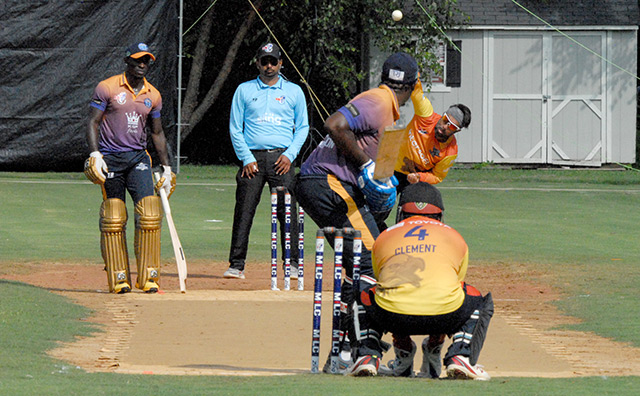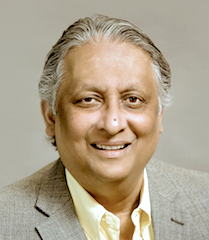
By Jagan Jagannathan
I have been part of the USA Cricket (USAC) Sustainable Foundations Group (2016-2018), which helped draft the USAC Constitution, and Chair of the USAC Nominating and Governance Committee (NGC) from 2019-2022. In doing so, I have learned many lessons about sound and stable governance and the painful drawbacks when governance is not what it should be. In this article, I have tried to capture this for the benefit of all stakeholders of USA Cricket.

Governance is a broad term that encompasses how an organization (such as USAC) should conduct its operations to benefit US Cricket in a manner consistent with the Constitution. Such governance includes elections for seven member-chosen Directors, a Board Chair and Officers (Secretary and Treasurer), appointing three Board-chosen Independent Directors, selecting a Chief Executive, and members of Standing committees and their chairs as specified in the Constitution. It also includes the following:
A. Planning (strategic, financial, tactical operations) and supporting and guiding the Chief Executive and his/her staff.
B. Resolving conflicts of interest and other ethics-related issues as they arise within the Board or administrative staff.
C. Fostering and enhancing partner relationships for the benefit of US Cricket.
D. Working with the International Cricket Council (ICC) and other ICC member Boards in mutually beneficial ways.
E. Keeping and recruiting members (individual, club, league, and other organizations), and offering members attractive benefits, and ensuring members are legitimate to the extent provided for in the Constitution.
F. Directly and indirectly, supporting on-the-field cricket activities by establishing pathways from grass-roots youth cricketers to young adult cricket, from school and college cricket to adult and senior adult cricket, and from domestic competition to representative cricket for both men and women.
There are three specific areas of good governance I believe USAC can and should improve so that the potential for US Cricket is better realized:
- Electing Board directors for fixed terms on an uncompromised schedule.
- Appointing independent Board directors for limited periods, again on an uncompromised schedule.
- Dealing with conflict of interest within the Board or USAC staff in a principled and practical manner.
Election Delays and Eligibility to Vote
Elections are the lifeblood of all representative organizations – it is no different for USAC. That they are fair and transparent, as run and perceived to be run, is essential. That they are conducted on time is just as important. One of USAC Board’s primary responsibilities is to ensure this occurs. Failure to do so often leads to member disengagement and cynicism, partner concerns, and ICC sanctions, none of which USAC can afford.
The initial elections were held in mid-2018, and the subsequent elections more than a year later, in December 2019. Then there were no elections held for various extenuating circumstances till mid-2022. While the pandemic played a role, the lapse was the source of much discontent and criticism, much of it deserved. The fallout was considerable. USAC Board had and still has several elected members (from 2018) who stayed beyond their term’s end date, in some cases by over a year. Staggering of terms as articulated in the Constitution was lost in the process.
Elections should be held at a set time of the year; so that everyone knows ahead of time and can plan accordingly. It is the Board’s responsibility, not the CEO’s or a standing committee’s. The CEO, requisite staff, and the NGC can implement the elections, but the need for elections every year is entirely on the Board of Directors to ensure it happens.
Having delayed elections for 2021 and 2022, it is imperative that Board directors who have long overstayed their term no longer participate in Board-level decision-making. Unfortunately, this has not been the case and continues not to be the case. While the 2019 elections had under 1,000 members eligible to vote, the 2022 elections had to deal with close to 20,000 members who were potentially eligible to vote. Each member had paid their dues and expected to vote in the next election (2021). USAC did not appear to check if the members admitted had met the admission criteria – they could have been fake. They may not have provided requisite information such as verified emails, OTP-compatible phone numbers, and valid dates of birth in the case of individual members of a club, club nominee information, or league’s club members and league nominee information. Thus, many members who thought they were eligible to vote were, in fact, not per USAC, typically because their information was incomplete.
It was alleged, in some instances, that members were “fake,” except those members already admitted and who met the criteria established by USAC. It is worth noting that the Constitution gives USAC singular and complete authority to decide who is admitted as a member without recourse for appeal.
Appointing Independent Directors
Unlike elected directors, the appointment of independent directors by the Board is based solely on the recommendation of one or more candidates by the NGC. The term of an independent director is three years in length. There are to be three independent directors whose terms are staggered, so only one independent director needs to be appointed per election cycle.
The Constitution does not clarify which Board appoints the Independent Directors, the one existing before the election or the newly seated Board after the election. While either way can work, in American sports organizations, it is common that the Board seated before the election appoints the independent director(s).
The work of the NGC in selecting one or more candidates for the Board appointment of Independent Directors needs to be fair and thorough. The NGC, per the Constitution, has four members – one appointed by the Board, one appointed by the Players (which by convention has alternated between male and female every year), one appointed by the ICC, and one appointed by the United States Olympic Committee (USOC).
Each candidate for Independent Director must be agreed upon by at least three of the four members of the NGC who per the Constitution get one vote each; this ensures near consensus or unanimity among the NGC members, representing different stakeholders, in selecting candidates. The structure of the NGC must be kept, and the need to reach a consensus on each candidate is essential. Failure to do so will compromise the integrity of USAC. It is also critical that the NGC not be subjected to external influences from the Board, the Players, the ICC, the USOC, or anyone else. Thus, terms of reference for its functioning are critical to be in place and enforced on an annual basis.
Conflict of Interest
Conflict of interest is always a matter of concern in any organization, and USAC is no exception. Very simply put, a conflict of interest exists when a USAC Board Member, CEO, or staff, has a relationship with a third party that directly conflicts with the USAC.
One conflict of interest that frequently occurs is the involvement of incumbent Board Directors in any function relating to the elections. Another example is if the USAC CEO has financial dealings with a company building cricket stadiums or other facilities for USAC.
Another is if a USAC staff member operates a third-party cricket training facility that USAC selects as its preferred training facility. Yet another example of a conflict of interest would be a serving USAC Board member with a current leadership role in a USAC member league or club. It could be a potential conflict, for example, in determining where USAC tournaments are held or selecting representative teams from members of the different leagues across the country.
Any USAC Board or staff member who thinks that they or someone else has a conflict of interest needs to bring it to the Board’s attention and resolve it. Resolution (or cure) can be the member severing the relationship in question with the conflicting third party or agreeing to exclude themselves from any USAC discussions that involve the conflicting third party. Severance is preferred to contextual isolation.
Final Thoughts
USAC governance needs to be taken seriously so that any transgressions are addressed as early as possible and as effectively as possible. Not doing so has far-reaching adverse consequences that often hurt US Cricket, such as ICC sanctions, suspension, or legal actions from aggrieved parties.
Based on my understanding and experience, the key points for a good USAC governance are as follows:
• Hold annual elections on time, ensuring Board members do not stay on the Board past the end of their term. If they do, their role is that of a non-voting observer at best.
• Ensure that member admittance is subject to checks for authenticity and that any further eligibility requirements to vote are clearly articulated.
• Appoint independent directors who serve the best interests of US Cricket by using the independently operating NGC to select potential candidates.
• Ensure that all Board Directors and Staff disclose any potential conflicts of interest as soon as they occur and these, if deemed conflicts are cured satisfactorily as quickly as possible.
The views expressed in this column are solely those of the writer and do not necessarily represent the views of www.usacricketers.com.
If you would like to publish your club’s or league’s report or your opinion, please reach out to us, we also provide the service of writing your report. Contact us at [email protected].



